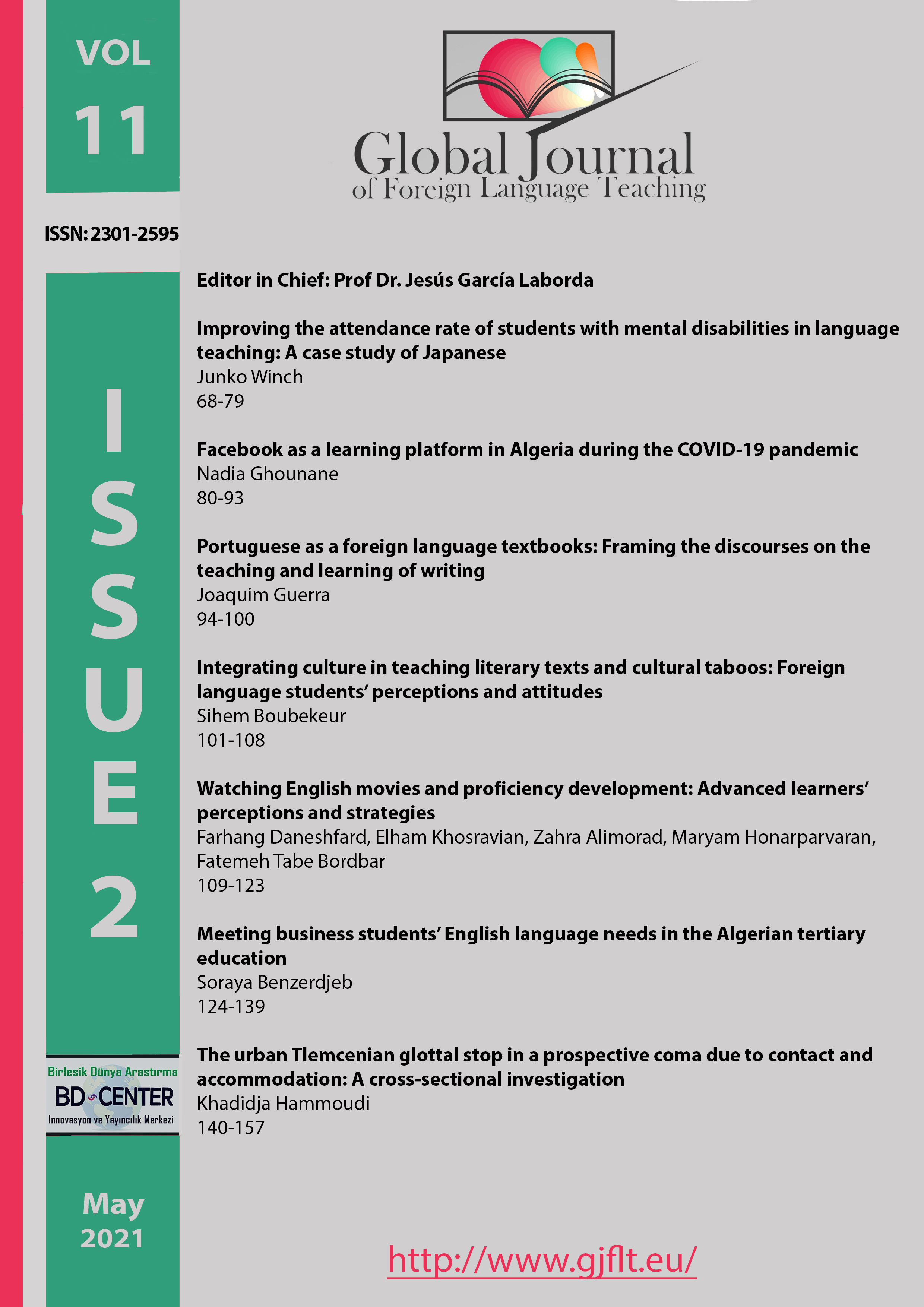Message from the Editor in Chief
Main Article Content
Abstract
Dear reader,
We are delighted to publish Volume 11, number 2 of the Global Journal of Foreign Language Teaching. This issue aimed to factor in the various aspects of language teaching and learning, as well as factors that affect the process. As such, the reviewers considered aspects such as the mental health of students, the COVID-19 pandemic effects on learning, innovative methods of teaching, and culture .
With regards to the aim of this publication, six (6) papers were selected from Algeria, Iran, Portugal and United Kingdom. The selected papers include the following ;“Improving the attendance rate of students with mental disabilities in language teaching: A case study of Japanese”; “Facebook as a learning platform in Algeria during the COVID-19 pandemic”; “Portuguese as a foreign language textbooks: Framing the discourses on the teaching and learning of writing”; “Integrating culture in teaching literary texts and cultural taboos: Foreign language students’ perceptions and attitudes”; “Watching English movies and proficiency development: Advanced learners’ perceptions and strategies”; “Meeting business students’ English language needs in the Algerian tertiary education”.
We are pleased to present to our readers this high-standard publication. We extend our heartfelt gratitude to all the contributors of this issue. Dear reader, enjoy reading!!
Best Regards,
Jesus Garcia Laborda, University of Alcala, Spain,
Editor-in-chief.
Downloads
Article Details

This work is licensed under a Creative Commons Attribution 4.0 International License.
Authors who publish with this journal agree to the following terms:- Authors retain copyright and grant the journal right of first publication with the work simultaneously licensed under a Creative Commons Attribution License that allows others to share the work with an acknowledgement of the work's authorship and initial publication in this journal.
- Authors are able to enter into separate, additional contractual arrangements for the non-exclusive distribution of the journal's published version of the work (e.g., post it to an institutional repository or publish it in a book), with an acknowledgement of its initial publication in this journal.
- Authors are permitted and encouraged to post their work online (e.g., in institutional repositories or on their website) prior to and during the submission process, as it can lead to productive exchanges, as well as earlier and greater citation of published work (SeeThe Effect of Open Access).
